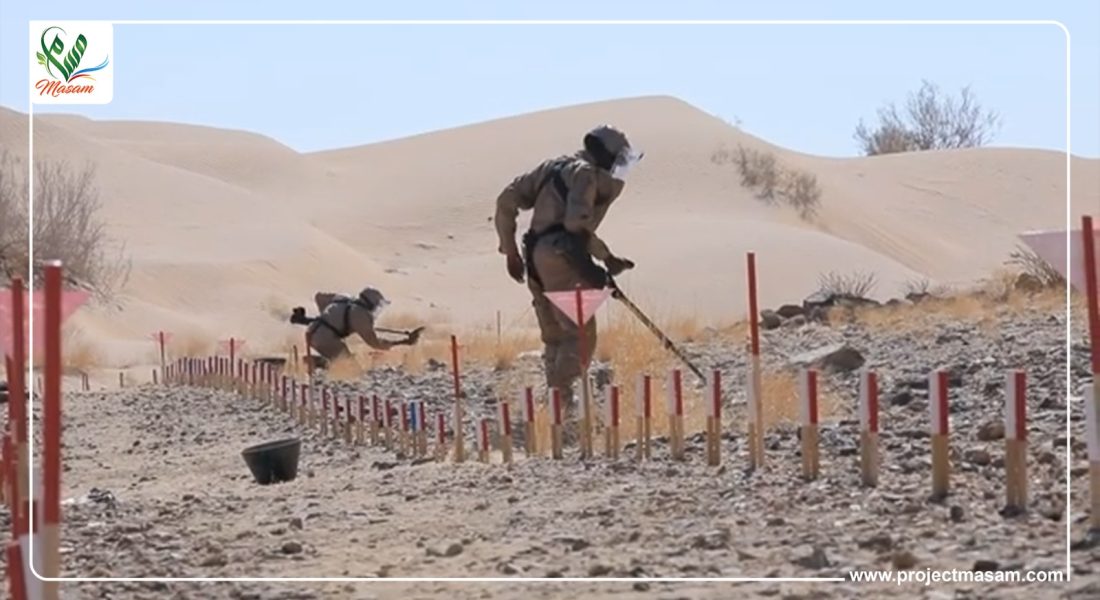Project Masam’s Team 9 has continued its efforts to secure a second anti-personnel minefield in a camel grazing area in Usaylan district, in Yemen’s resource-rich Shabwah governorate.
Because of their indiscriminate nature and humanitarian impact, anti-personnel landmines are prohibited under international humanitarian law, the 1997 Mine Ban Convention and Yemeni law.
After weeks of clearance efforts, Team 9 secured a minefield in the Koroun Al-Thaaleb area, resulting in the removal and demolition of over 150 anti-personnel landmines, in addition to several improvised explosive devices (IEDs) and dozens of other mines.
This milestone illustrates the team’s efforts and commitment to ensuring the safety of villagers and shepherds, and maintaining the security of the region – one of the most landmine-contaminated in Yemen.
Clearing second large anti-personnel minefield
Since the beginning of December, Team 9 has moved to secure a second minefield to clear densely planted landmines in this area, which extends for more than 25,000 square metres (the equivalent of 625 football fields), and is used for camel grazing by farmers.
The leader of Team 9 confirmed that, since the start of their work in the second minefield in the area of the Koroun Al-Thaaleb, the team managed to open safe corridors and locate the mined area.
Work to completely clear the field is underway.
The team leader also confirmed that work will continue until the Koroun Al-Thaaleb area is fully secured, and the safety of camel grazing is guaranteed to civilians – which represents a major source of livelihood in the area.
Working in anti-personnel minefields is difficult and dangerous, and requires the utmost caution and adherence to international International Mine Action Standards.
Project Masam us dedicated to clearing the area despite the danger and educate local populations through Explosive Ordnance Risk Education (EORE), to ensure the safety of civilians, farmers and camel herders, enable them to live freely and safely away from these deadly devices, and promote development in this region of Yemen, which became a battleground in Yemen’s war in 2015.

